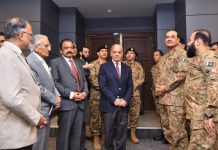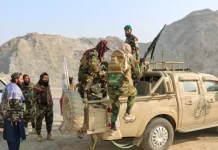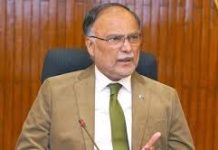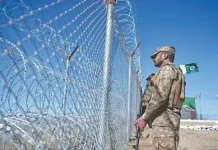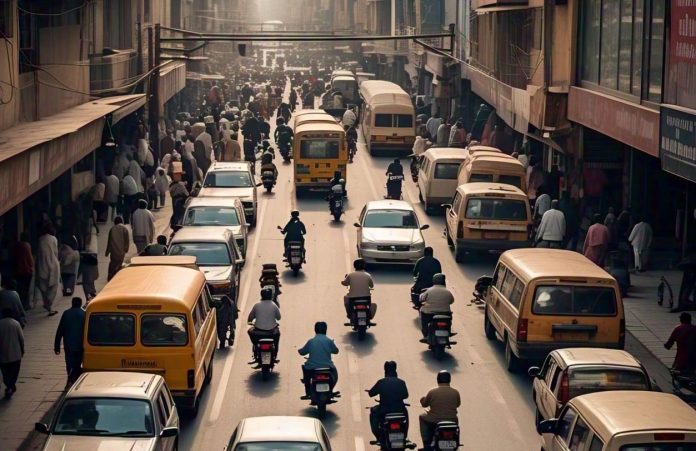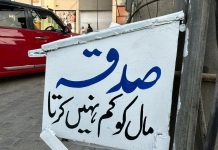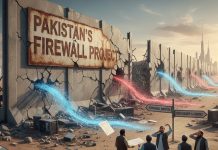
By Muhammad Zeb
Peshawar, once known for its vibrant culture and historic charm, is increasingly being defined by a different characteristic: gridlock. The city’s roads, once navigable, have become a frustrating labyrinth, where even short journeys can take hours. This traffic congestion is not merely an inconvenience; it’s a significant impediment to the city’s economic growth, social development, and overall quality of life.
Several factors contribute to this chronic congestion. The burgeoning population, coupled with a rapid increase in vehicle ownership, has far outpaced the city’s infrastructure development. Narrow roads, poorly planned intersections, and a lack of efficient public transportation systems exacerbate the problem. The unregulated growth of rickshaws and other unregistered vehicles further compounds the issue, adding to the chaos on the roads.
However, the problem goes beyond mere infrastructure deficiencies. The role of traffic police in exacerbating the situation cannot be ignored. Allegations of rampant corruption are rife, with reports of traffic police officers extorting bribes from rickshaw drivers and other motorists. This not only undermines the rule of law but also discourages citizens from complying with traffic regulations.
Furthermore, the lack of effective oversight and accountability within the traffic police department is a major concern. The absence of a robust system of checks and balances allows corruption to thrive. Moreover, the presence of private security companies like “Tez Raftar” further complicates the traffic management landscape. While these companies are intended to improve traffic flow, concerns have been raised about their accountability and potential for abuse of power.
The consequences of this gridlock are far-reaching. Commuters spend hours stuck in traffic, leading to increased stress levels, lost productivity, and delayed appointments. Businesses suffer from difficulties in transporting goods and services, impacting their bottom line. Emergency vehicles face challenges in reaching their destinations, potentially endangering lives. Moreover, the constant idling of vehicles contributes to air pollution, posing serious health risks to the city’s residents.
Addressing this crisis requires a multifaceted approach. Firstly, there is an urgent need to improve public transportation. Investing in a reliable and efficient bus rapid transit system, coupled with dedicated lanes and improved connectivity, can encourage people to shift from private vehicles to public transport. Secondly, the city needs to prioritize road infrastructure development, including widening existing roads, constructing flyovers and underpasses, and improving traffic signal synchronization. Thirdly, stricter enforcement of traffic rules and regulations is crucial. This includes cracking down on illegal parking, reckless driving, and the proliferation of unregistered vehicles.
However, addressing these issues requires a fundamental reform of the traffic police department. This includes measures to enhance transparency and accountability, such as implementing a robust system of internal audits and citizen feedback mechanisms. Furthermore, the role and responsibilities of private security companies like “Tez Raftar” need to be clearly defined and regulated to ensure they operate within the law and do not contribute to traffic chaos.
In conclusion, the traffic congestion in Peshawar is a complex issue that requires a comprehensive and sustained effort to address. By implementing a combination of short-term and long-term solutions, including improvements in public transportation, infrastructure development, and a thorough reform of the traffic management system, the city can reclaim its roads, improve the quality of life for its residents, and unlock its full potential for economic and social development.

